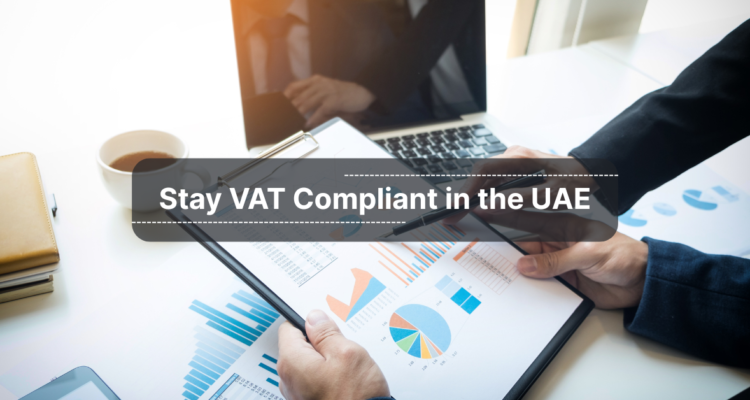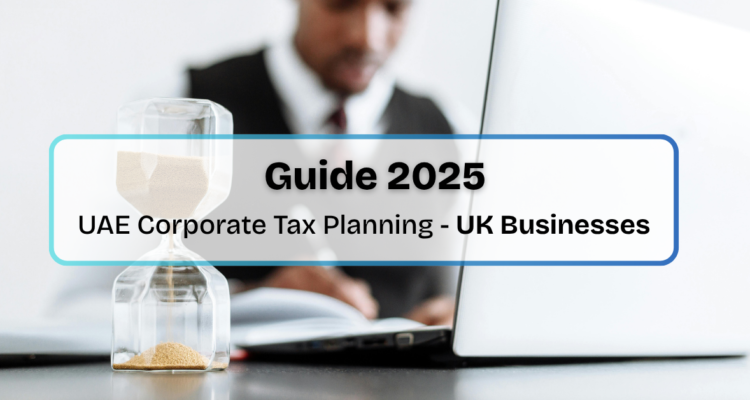The United Arab Emirates (UAE) is an attractive destination for UK entrepreneurs, offering a strategic…

How to Stay Compliant with UAE VAT Through Accurate Bookkeeping
In the UAE, compliance with Value Added Tax (VAT) regulations is a legal obligation for registered businesses. Introduced in 2018, the VAT system mandates that businesses record, report, and pay VAT on taxable goods and services. A critical component of this compliance is accurate bookkeeping. Without proper financial records, businesses risk incurring fines, legal issues, and reputational damage.
This blog explores how accurate bookkeeping helps businesses in the UAE maintain VAT compliance and avoid potential pitfalls.
1. Understanding VAT Compliance in the UAE
VAT in the UAE is set at a standard rate of 5% and is administered by the Federal Tax Authority (FTA). All businesses with annual taxable supplies and imports exceeding AED 375,000 are required to register for VAT.
Compliance requires:
- Timely VAT registration and renewal
- Accurate invoicing with VAT details
- Timely submission of VAT returns (usually quarterly)
- Proper VAT payments within the stipulated deadlines
- Organized financial records and invoices for FTA audits
2. The Role of Bookkeeping in VAT Compliance
Bookkeeping involves systematically recording all financial transactions. In the context of VAT, bookkeeping provides a structured record that simplifies reporting, filing, and auditing.
Key Functions of Bookkeeping for VAT:
- Recording Sales and Purchases: Tracks VAT collected and paid
- Maintaining VAT Invoices: Ensures invoices contain all mandatory details (TRN, date, amount, etc.)
- Reconciliation: Matches VAT returns with bank statements and ledgers
- Generating Reports: Produces reports required for filing VAT returns
- Document Retention: Retains records for a minimum of 5 years, as required by the FTA
3. Common Bookkeeping Mistakes that Lead to VAT Non-Compliance
To stay compliant, businesses must avoid errors such as:
- Incorrect classification of VAT-exempt vs taxable supplies
- Failure to issue proper VAT invoices
- Omitting reverse charge transactions for imports
- Late filing of VAT returns
- Inaccurate or incomplete transaction records
Such mistakes can lead to hefty penalties, including administrative fines of up to AED 10,000 for the first offense.
4. Best Practices for VAT-Compliant Bookkeeping
Use Accounting Software
Leverage cloud-based accounting tools that are FTA-compliant. These systems automate VAT calculations, invoice generation, and reporting.
Keep Separate Ledgers for Input and Output VAT
Maintain clear records of VAT paid on purchases (input VAT) and VAT collected on sales (output VAT).
Conduct Regular Audits
Monthly or quarterly internal audits help catch and correct discrepancies before submission.
Hire Professional Bookkeepers or Consultants
Engaging certified accountants or VAT consultants ensures accuracy and helps businesses stay updated with tax law changes.
Train Your Staff
Ensure finance and sales teams understand VAT rules and are trained in record-keeping and invoicing practices.
5. The Role of Professional Services in Ensuring Compliance
Many small and medium-sized businesses in the UAE outsource bookkeeping and VAT filing to specialized consultants. This not only ensures compliance but also reduces overheads and operational risk.
Professional bookkeeping services offer:
- Accurate data entry and ledger maintenance
- Timely VAT return filings
- Support during FTA audits
- Strategic tax planning to minimize liabilities
Final Thoughts
In today’s tax environment, accurate bookkeeping is not just a financial best practice—it is essential for VAT compliance in the UAE. By establishing robust record-keeping systems and partnering with experienced professionals, businesses can confidently meet their tax obligations, avoid penalties, and focus on growth.
For businesses looking to streamline their VAT and accounting processes, professional guidance can make all the difference.
Ready to ensure VAT compliance through accurate bookkeeping?
Contact our experts for a free consultation and discover how we can support your business.




